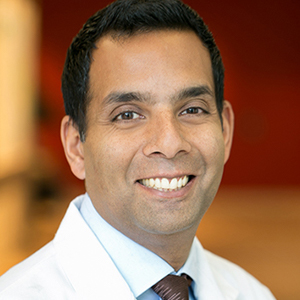As we enter the winter months, the conversation around COVID-19 has shifted from how the virus has affected older adults living in long term care homes, to students going back to school and now dealing with the pandemic on top of cold and flu season. However, I want to start the conversation about older adults living at home in the community who are justifiably becoming anxious again with a second wave upon us.
With physical distancing restrictions, older adults have become more isolated than ever from the rest of the people in their lives. Social isolation is defined as a lack of social engagement affecting the individual’s psychological, cognitive and medical health. According to a study conducted by the National Seniors Council, prior to the COVID-19 pandemic 50 per cent of adults over the age of 80 reported feeling lonely.
I talked with Revital Shuster, a Circle of Care Social Worker Care Navigator based at Sinai Health’s Bridgepoint Campus who provides care navigation supports to clients transitioning from both rehabilitation and transitional care units and Anna Siciliano, a Circle of Care Social Worker Care Navigator working as a member of the Sinai Health and University Health Network’s Independence at Home Community Outreach Team based out of the Toronto Rehabilitation Institute to hear from them about how older adults are dealing with social isolation now. As veteran community-based social workers, they are typically visiting people in their homes. Their unique perspective on what is happening beyond the walls of our hospitals was something I wanted to hear more about particularly at this time.
“Since COVID-19 everything seemed to stop. Older adults are not being engaged as much, and more are feeling depressed and not thriving. There is a growing shortage of Personal Support Workers (PSWs), so people are being left alone for longer periods of time,” Revital says. “Social isolation exacerbates dementia and can also cause depression. The isolation almost creates this failure to thrive in the home and since many frail older adults are not coping well at home, they’re going in to long-term care homes faster.”
Though COVID-19 has made the situation worse, older adults have always been at risk for social isolation. Life events such as bereavement or retirement, as well as financial difficulties, ethnicity and fear of becoming a burden are always risk factors for isolation. “As we age, social relationships deteriorate for a few reasons – we tend to outlive family members and friends who provide much social support, there can also be mobility and health issues that can make it harder for us to maintain relationships with others,” Revital tells me. “Some older persons may also have anxiety to get out of the house which can further cause self-isolation.”
Anna adds, “We have also been seeing an increase in older persons visiting hospital emergency departments not specifically because of medical issues but because being social isolated has created too many issues for them to stay healthy and independent at home. For example, homebound older adults have been increasingly experiencing worsened anxiety, depression, dementia with isolation and this has been leading to a heightened crisis situation in our emergency departments.”
Before COVID-19, there were many opportunities for older adults to engage socially, but it is a different world now, making connection even more challenging. “Pre COVID-19, older adults were participating more in adult day programs. When an older adult, especially an older adult with cognitive impairment, goes to an adult day program it helps provide them with additional and meaningful social stimulation while also providing respite for their family caregivers,” Anna says. “With these programs not functioning at full capacity right now, or only virtually, results in some challenges for many people with dementia; it causes an increase in caregiver burnout and stress and increases people frequenting hospital emergency departments or transitioning to long-term care settings.”
“There are community programs, volunteer programs and Seniors Active Living Centres. If you’re interested, there’s lots to do but it can be really hard to engage an older adult that is already depressed.” Revital adds.
Not all is lost though, there are still ways for older adults to connect, but there continue to remain barriers to access.
“At Circle of Care, we are running virtual support groups for caregivers and socially isolated older adults but they need to have the technology or internet access to connect. If they don’t have it, they’re not able to participate,” Anna says. “There has been a surge in virtual platforms. If we could help older adults get access and education on how to use the technology, we’d be able to reach a lot more people.”
“There are also virtual exercise and falls prevention classes,” Revital says. “For those who do not have computer technology or internet access, there is the Phone Pals program where an older adult can connect with someone on the phone or even grocery delivery programs – it’s not a social event but it is an interaction that brings many comfort and connection.”
Even small interactions can make a big difference. “I have a client who waits for his grocery delivery service once a week because it’s his way to connect with another human being, even for just a few moments,” Anna says.
Though times are tough right now, there are resources for building and strengthening social relationships. Our goal should be now to help the older people in our lives stay connected in whatever way will work best for them.
Here are some helpful resources:
Baycrest Senior Support Program
Dixon Hall Neighbourhood Services


